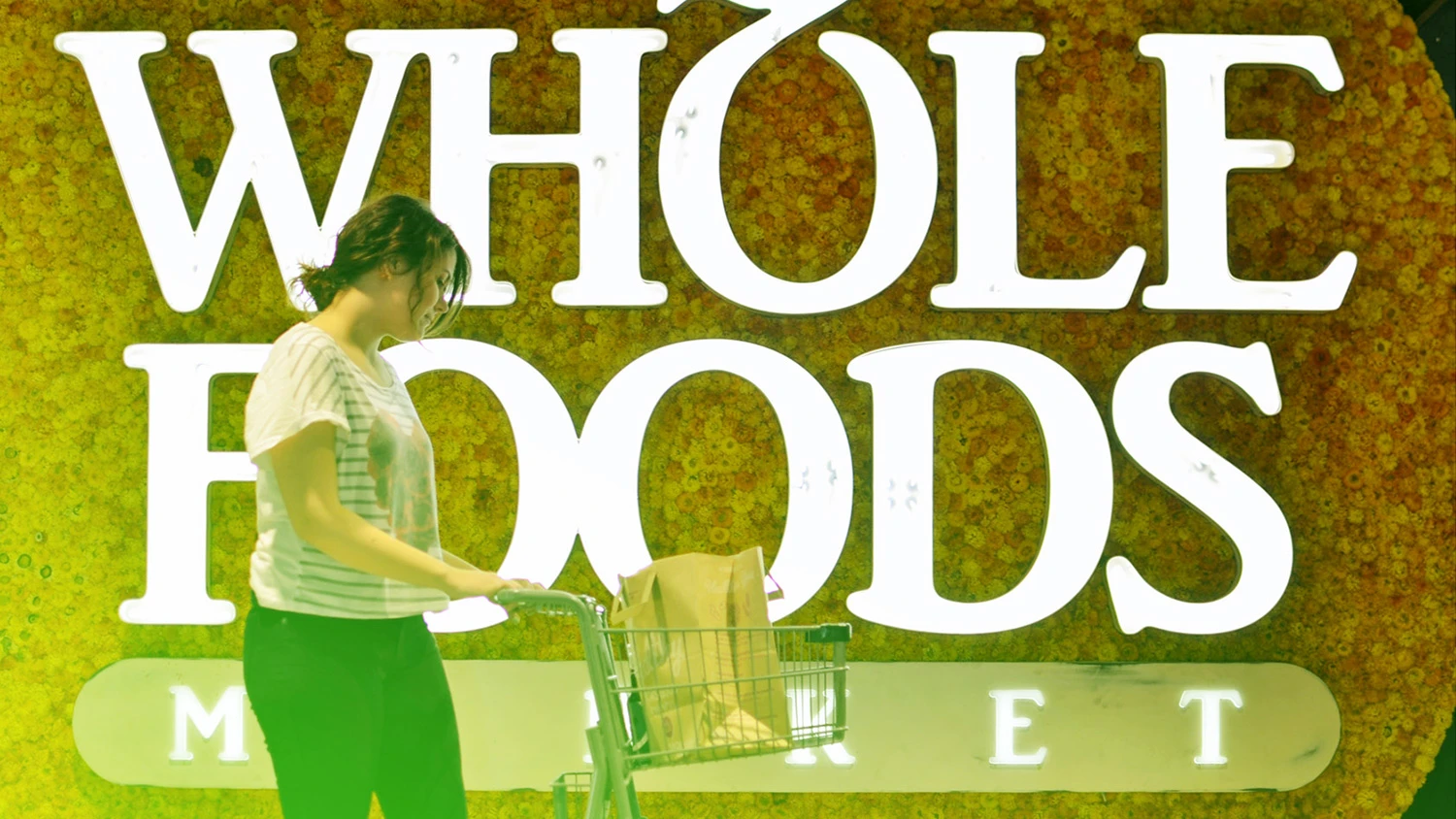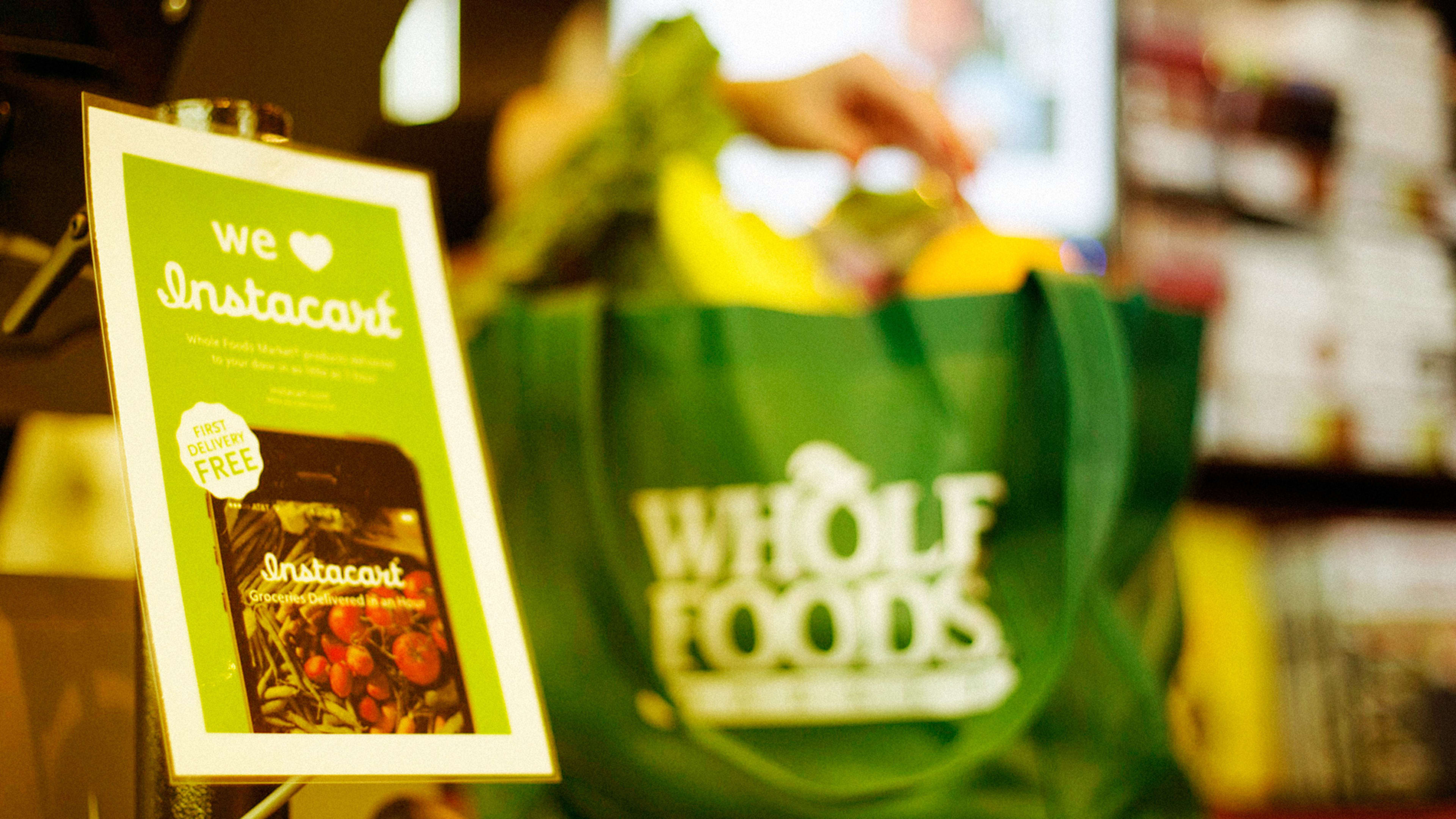Amazon’s acquisition of Whole Foods is sending tremors through the entire grocery industry–and raising concerns about the fate of delivery services like Instacart, whose carrot-logo boxes are ubiquitous at the popular food chain.
Its acquisition of Whole Foods effectively gives the online retail behemoth control of over 400 brick and mortars and a whole new bevy of merchandise. Amazon has already ventured into grocery with Amazon Fresh, and this new deal has the potential to give customers even more options to buy groceries for delivery, pickup, or last minute at the store. It also gives Amazon access to more niche products like organic produce and its low-price 365 store brand, popular with Whole Foods’s affluent shoppers. “If I can [get] fresh and natural and authentic foods, and I can get the right intersection of value and convenience—then that’s the ultimate win,” says David Portalatin, vice president and food industry analyst for the NPD group. He notes that of the 7% of people that shop for groceries online, slightly more than half have Amazon Prime accounts.
No doubt, the rest of the grocery industry will be eager to ramp up their digital presence and offerings as a result of the deal. Many of Whole Foods’s competitors have already sought partnerships with delivery services like Instacart and Shipt. “Every time Amazon goes into a market, we get calls,” a representative from Instacart told me earlier this year, referring to grocery chains.
But the deal still has potentially negative implications for Instacart. Last year, Whole Foods and Instacart signed a five-year exclusive deal, according to Recode. That deal could now be in jeopardy—terminated prematurely or not renewed once the contract ends—since Amazon will very likely want to use its own logistics. However, Axios reports there’s no “contractual out” for Whole Foods as part of the deal.
Amazon is increasingly operating more aspects of the delivery process in order to shuttle more packages out the doors of its warehouses and to get the goods delivered to your doorstep more quickly. Kerry Wu, senior research analyst at CB Insights, notes that Amazon is applying for nearly 100 logistics-related patents every year aimed at cost efficiencies. Another possible risk: As Amazon starts to sell Whole Foods products on its online store, it could impinge on the chain’s agreement with Instacart if Amazon handles its own delivery.

What will be difficult for the company about potentially losing Whole Foods is that the grocer’s customer base may be more likely to shop online than other stores. In the Recode report from last year, a Whole Foods sale rep noted that Instacart accounted for total sales percentages as high as “the mid- to high single digits” in certain stores. People who shop online tend to be more affluent and in the millennial age set.
But a source familiar with the company says that less than 10% of Instacart’s revenue comes from Whole Foods, and that percentage is on the decline as new retailers sign on to its service. With online food sales expected to increase, Instacart is likely to see more interest from grocers. To that point, the company recently struck a deal with Wegmans, which has 92 stores along the Eastern seaboard that offer organic and unique food items, as well as more traditional brands like Publix and CVS.
In a prepared statement, Instacart says “We’ve been committed to helping grocers compete online. That’s more important than ever given Amazon just declared war on every supermarket and corner store in America.”
This story has been updated with remarks from Instacart.
Recognize your brand’s excellence by applying to this year’s Brands That Matter Awards before the early-rate deadline, May 3.
